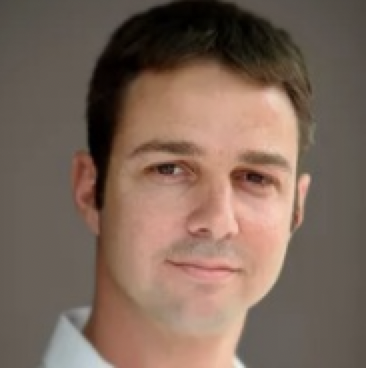18
Jan 2021
Finding Opportunities to Exercise Leadership During the Pandemic
WIF Alum Yoav Zuckerman (Class 16)
Last April, we experienced the first COVID-19 lockdown. We were trying to make sense of the events that were unfolding across the globe and to assess the immediate impact on our organizational and personal lives.
During that first lockdown, Ronald A. Heifetz, founder of Harvard’s Center for Public Leadership who established the Adaptive Leadership framework, held a Zoom webinar, trying to separate the wheat from the chaff for the hundreds of faces crowding the Zoom screen. It was an attempt to understand this unprecedented crisis that had erupted worldwide.
That, by the way, was my first experience with Zoom …
Heifetz described the life cycle of any crisis:
- The preparation phase
- The emergency phase
- The adaptive phase
This crisis life cycle can be easily illustrated using an example from the world of medicine, such as a 50-year-old man experiencing a cardiac arrest:
In the preparation phase, this man maintains his routine and convenient lifestyle, which includes an unhealthy diet, smoking and no exercise. He disregards the need to change his habits, hoping to get lucky and avoid any negative consequences.
In the emergency phase, this man is seized by sharp chest pains and after arriving to the ER, is diagnosed and undergoes lifesaving procedures to stabilize his condition. He then must remain in the hospital for some time for recovery and monitoring. During this period, he begins to comprehend the full extent of the danger he was in. He is filled with gratitude toward the medical staff, who impress upon him the importance and means of changing his lifestyle in order to reduce the risk of a reoccurrence.
The adaptive phase begins when our patient is discharged from the hospital. The emergency phase and imminent danger are behind him; he thanks the heavens for his good fortune and the doctors whom skillfully saved his life.
On the one hand, he now understands that he no longer has a choice – he must acknowledge his condition and change a lifetime of bad habits. He must adopt a healthy, balanced diet, stop smoking and start exercising. He knows deep down inside that the time for change has come – it’s now or never.
But on the other hand , old habits die extremely hard. His comfort zone calls out to him, offering its warm, familiar warmth. More than anything, he’s dying for a cigarette.
The danger has passed, the crisis is behind him and the wonderful medical staff would no doubt save his life again if God forbid, he has another heart attack.
In this adaptive phase, in the wake of the anxiety of the emergency phase, a window of opportunity presents itself. This man is ready to face adaptive challenges, which until now seemed an impossible task.
These are the three stages of any crisis. Since that last Zoom webinar with Prof. Heifetz, I have been contemplating the COVID-19 crisis life cycle.
It seems that the COVID-19 pandemic is a more complex crisis, unusual and indeed different from anything we have seen. This is due to its global reach and direct impact on the world’s entire population. We are accustomed to dealing with crises that affect a specific group, such as a family or a business organization, a sector of the economy, a country or a region. COVID-19 has unleashed a big bang of crises in all areas of life. It touches every individual, organization and state on the face of the planet and gives rise all together to a flood of adaptive challenges pertaining to nearly every walk of life.
And yet, the three phases of the crisis life cycle apply to the global COVID-19 pandemic as well, with some interesting complexity.
In the preparation phase we’ve grown accustomed to a wonderful routine and have put our trust in our national health system. Unalarmed, we crowded into trains, sat next to strangers on long flights and shared food in restaurants. After all, epidemics were something that occurred in faraway places. Countries, organizations and individuals went on living their lives with no fear of a global outbreak of a deadly disease.
The emergency phase of the COVID-19 pandemic is unique since it has been going on for over a year. With a heart attack and many other crises, this stage is usually short and extremely frightening. In most instances, we make it out of the woods relatively quickly and the situation stabilizes. We understand exactly what the cause for the crisis was and can identify what steps are needed to avoid a similar episode in the future.
The COVID-19 crisis hits us in waves. This prolonged crisis has forced us to start implementing essential changes: families are learning to spend intensive time with each other, students and teachers adapt to distance learning, we’ve managed work-from-home instead of going to the office and physically meeting our colleagues, we made do without our usual overseas vacations and we’ve adjusted to face masks and avoiding physical contact.
The lucky ones among us easily embraced these adaptations and may feel that on our part, the emergency phase is over. However, most people still live in a state of anxiety and daily uncertainty.
The COVID-19 emergency phase is not over yet.
The adaptive phase, in which people are ready to face painful, but necessary changes, is soon to arrive.
Despite the feeling that we’ve regained control and are ready to tackle headfirst systemic changes on national, organizational and personal levels, it’s important to note that the adaptive phase of the COVID-19 crisis is not here yet.
Before leading change and implementing important initiatives, it is imperative to ascertain that the group members – be it family, organization or country – are ready for adaptive efforts.
If you feel a burning desire to lead change , now is the time to prepare, observe and lay the groundwork for intervention. It is imperative that we find the time to read the map of which we wish to change, to understand the situation of the group members, learn the views of the stakeholders and identify the means with which to sway them.
Timing is crucial. What a waste it would be to deploy the “ammunition” we’ve stockpiled up to this point, only to reach the adaptive phase with group members who have already formed a negative opinion about our initiative for necessary change.
The time to proceed from observation and preparation to intervention and exercising effective leadership will arrive once the adaptive phase commences. It will arrive into existence once almost everyone has received the COVID-19 vaccine and in turn truly feels that the acute threat is over.
No need to worry – the adaptive window will be open for some time. People will start listening once they realize that the emergency phase is over. True hope for a better future will present itself.
They will be willing more than ever to face difficult questions, to discern which values they choose to preserve, which novel notions and behaviors they will have to learn to develop in order to move forward. They will be willing to experience losses and refashion loyalties which they fiercely rejected not so long ago.
Once we reach the adaptive phase, people will come to realize that they must embrace change if they wish to thrive in an emerging new reality. They will need your help to avoid slipping back into the comfort zone they enjoyed in their pre-pandemic lives.
Returning to the example of cardiac arrest: they will feel the need to smoke a cigarette. Your job is to remind them that they have no choice but to kick the old habit for good and take up new alternatives to satisfy the needs that cigarettes have satisfied until now.
No less important is the necessity to truly understand the loss people are experiencing and ensure that the pressures of the adaptive change do not exceed the stress level that these group members are able to endure.
In the US and in Israel, substantial conflict has surfaced during this challenging time. We are all yearning for leaders who are worthy of our trust, cooperation and sacrifice.
The US has just elected a new President; in a few months Israel will cast its vote for its new government.
A new government in a vaccinated environment might be the perfect timing for our opportunity to exercise leadership – it’s just around the corner.
Now is the time to get ready.

Photo by Jakub Kriz on Unsplash
Get To Know The Author
WIF Alum Yoav Zuckerman (Class 16) is an Adaptive Leadership practitioner and lecturer in Israel, who translated Heifetz’s books into Hebrew and the author of his book “Israel Sea Ports – From Monopoly to Competition.”

